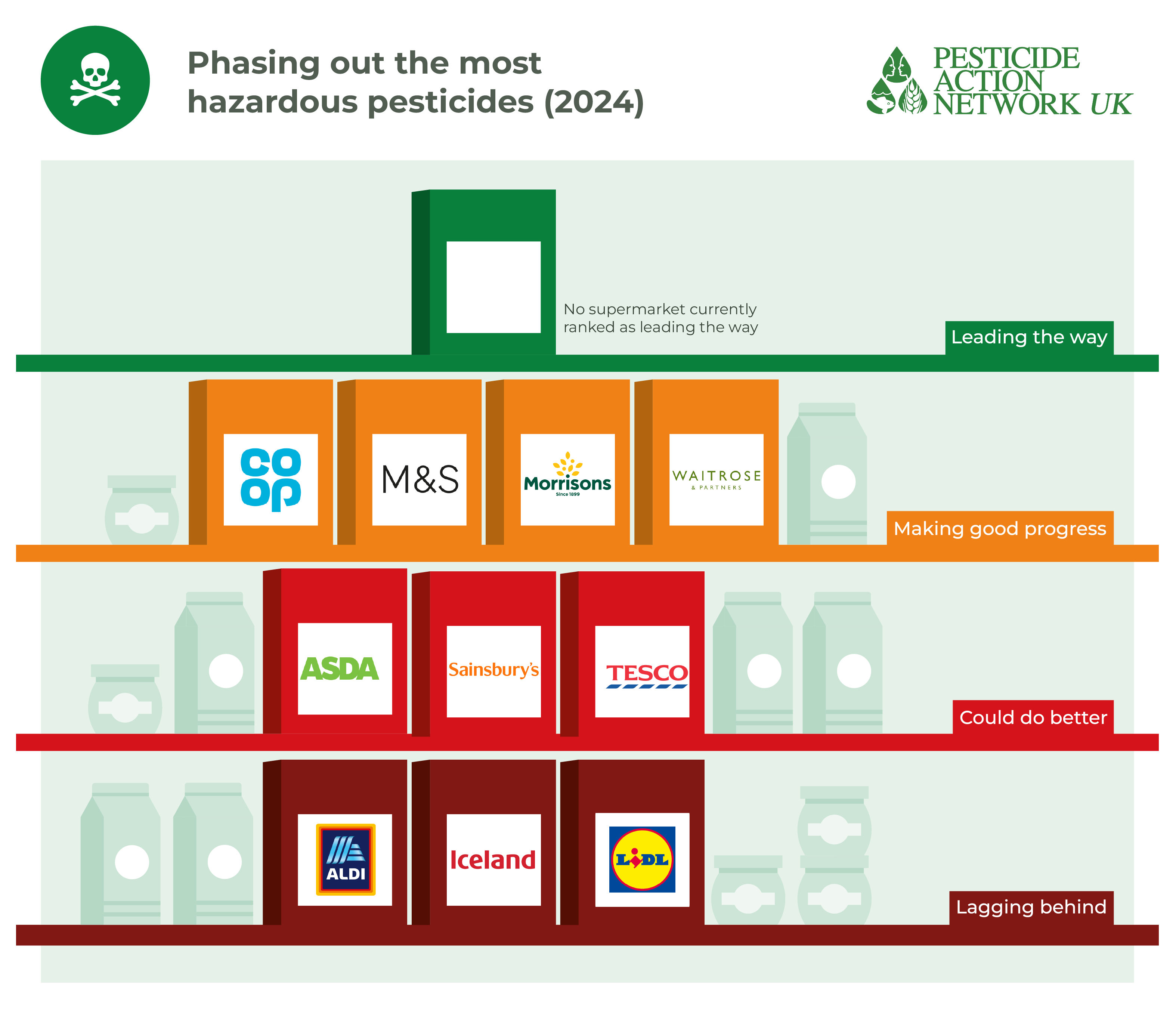
Pesticides are poisons designed to kill living things so, by their very nature, present risks for human health, wildlife and the environment. However, some pesticides are far more harmful than others and should therefore be a priority for phasing out as soon as possible. These are referred to as ‘Highly Hazardous Pesticides’ (HHPs).
The term ‘Highly Hazardous Pesticides’ is part of what is known as a ‘hazard-based approach’ which is based upon the idea that some chemicals are simply too harmful for the risks associated to their use to be managed. While some HHPs (such as DDT) have been banned globally, many remain in widespread use. This means that much of the produce found on UK supermarket shelves will have been grown using one or more HHP, potentially posing a significant risk to human health and the natural environment.
For example, the four neonicotinoids banned in the EU and UK in 2018 and 2020 are all classified as ‘HHPs’ due to their toxicity to bees. Similarly, paraquat – a pesticide with one of highest documented human fatality rates which is not permitted for use in the EU or UK but is used widely elsewhere – is classified by PAN as an ‘HHP’ because of its serious effects on human health.
The concept of Highly Hazardous Pesticides (HHPs) originated from the UN’s Food and Agriculture Organization (FAO) and World Health Organization (WHO) which were motivated by continuing problems of poisoning incidents and pesticide-related ill health and environmental harm, especially in countries with weak regulations. These problems were occurring despite government controls and agrochemical industry efforts to avoid risky practices and promote so-called ‘safe use’.
Almost all UK supermarkets have a list of pesticides which they prohibit, restrict or monitor due to environmental and health concerns. Which particular pesticides make it on to a supermarket’s list should be based on what are known as ‘hazard criteria’. For example, PAN International’s List of Highly Hazardous Pesticides includes pesticides classified by internationally recognised authorities under four types of hazard:
- Acutely toxic to humans via swallowing, skin contact or inhalation
- Long-term human health hazards related to cancer, birth defects and reproductive harm, disruption of hormone systems or damage to genetic material
- Environmental hazards (persistent in soil or water; ability to accumulate in the food chain; highly toxic to bees; toxic to aquatic organisms)
- Recognised as causing serious or irreversible harm under actual conditions of use in a particular country
Supermarkets should have their own set of hazard criteria against which pesticides are assessed to see if they should be added to their monitored, restricted or prohibited lists. While these criteria should ideally be based on PAN International’s List of Highly Hazardous Pesticides which is the most stringent, many currently rely on less comprehensive lists of pesticides included in international conventions. Once a supermarket has added a particular pesticide to its lists, it should put in place a clear and time-bound action plan for phasing it out of its entire global supply chain. Currently, most supermarkets’ lists only apply to their own-brand fruit and vegetables. Supermarkets urgently need to expand this approach so that, if a pesticide is added to a prohibited list, then it is banned from use on all their own-brand products (for example it would not be permitted for use on wheat grown for their own-brand bread and pasta).
While it is positive that the majority of UK supermarkets have lists of pesticides that they monitor, restrict or prohibit, many Highly Hazardous Pesticides are still widely used in the supply chains of every single UK supermarket. If all supermarkets were taking sufficient action to phase out the most harmful pesticides it could potentially lead to a significant reduction in pesticide-related harms, not just in the UK but globally.








